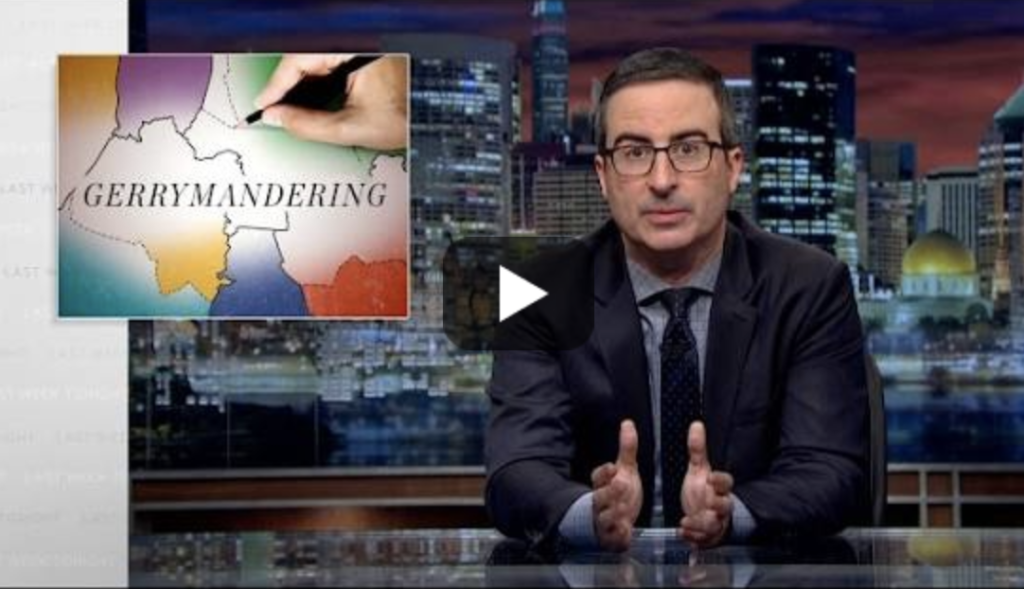Most people’s eyes glaze over at the sound of the word “redistricting.”
If you are one of those people, please grab a cup of coffee and power through it. This is important, whether you are a home owner or not.
For a humorous primer, check out this episode of Last Week Tonight. (Caution: strong language)
For a much dryer take on redistricting, listen to my interview on the Figure It Out Podcast from last month. (Yeah, I really know how to sell myself, huh?)

I’ll try not to go too much in to the weeds on redistricting. I am apt to do so, since I’ve been working on it for two decades now.
But, it is fundamental to a working democracy that we have fair and competitive districts –and crucial that you know the basics of the redistricting game.
Further, this is a “pox on both your houses” kind of issue when it comes to political parties. Just so you know where I’m coming from.
I’m throwing this redistricting issue up on the blog this month because there is yet another bill at the legislature –a proposed referendum on the 2020 ballot– that would deeply undermine fair redistricting.
It is called SCR1018, and it takes a little background to understand. This bill would ask the public to require that the largest district in Arizona cannot have more than 5,000 more voters than the smallest district.
Sounds fair, right? “One person, one vote”, right?
But it is not fair.
Like many things in redistricting, and most relationship statuses on Facebook, “it’s complicated.”
Not complicated like, “I’m gonna complicate the issue until you fall asleep and go away,” kind of complicated.
But complicated because our country has a long history of racism and voter suppression, which required the Voting Rights Act in the first place in order to protect people’s basic voting rights.
The core of the Voting Rights Act says that we must create districts that minority voters (African Americans, Latinos or Native Americans) have a chance to win in.
Why was this necessary? Well, because historically racist map drawers would crack or pack minority groups in to districts that made it impossible for their voices to be heard.
The solution is to allow a certain number of over-all districts in a state to be dedicated to a significant minority group.
So, for instance, if there are not enough Asian Americans in a state to create any districts in a reasonably compact area, then you don’t need to.
However, if there is a large Latino population in the state, you need to account for that by drawing districts that they have a chance to win in.
The complexity comes when you need to vary the size of legislative or congressional districts in order to make this happen.
Based on recent supreme court rulings (as recent at 2015), we can vary the population of congressional districts by a couple precent, and we can vary the population of legislative districts by as much as 10%.
That’s where the backers of SCR1018 come in. They say they believe such population variations mean some districts have more power than others –the districts don’t comply, they say, with the principle of “one person, one vote”.
I would be concerned about that argument if the difference were really that large. In a district of about 220,000 residents, the most a district will vary is 22,000 residents (and about 20% of those are not old enough or are ineligible to vote.)
While that is not ideal, it is nothing like the way the state operated up until 1964, where each county was a legislative district.
Think about that. La Paz county had the same number of representatives and senators as Maricopa County.
Most notably, in order to draw legislative districts for Native American populations, you need to vary the population of a couple districts.
(By the way, there are not enough Native American residents in a compact area to draw one congressional district, even if you could include all 22 tribes.)
Furthermore, these are the steps we have to take to defend the rights of large minority populations in Arizona.
I suppose, if the senator who is running this bill really wanted to not have to worry about the Voting Rights Act, he could stop supporting laws that suppress the votes of minority groups.
So, yeah. It’s messy. It’s not ideal. But until we stop seeing voter suppression bills out of this state government, or even the federal government, we need the Voting Rights Act and we need to protect minority populations.
Oh, and one more thing. Even if voters amended the state constitution in this way, it would be in violation of the Voting Rights Act and would likely be overturned, meaning we waste all that time and money doing something that is unconstitutional.
This opinion piece does a good job of explaining why this is a bad referendum.









